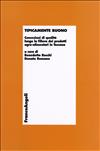
The position of Prince IX in Machiavelli's thought - The ninth chapter of The Prince, dedicated to the analysis of the "civil principaly" has during the last decades recalled on itself the increasing interest of the researchers, that have recognized in it one of the central passages of Machiavelli’s political theory. Nevertheless, it can be affirmed without fearing to be denied that few other pages of the Florentine secretary have recorded so deep interpretative divergences as this chapter. The essay that we present wants to be a contribution to the explanation and to the exact conceptual determination of Prince IX through the comparison with Discorsi I XL, a text that, as it will appear, not only takes back, but above all widens the perspective from which the subject of the chapter of the De principatibus is considered. With the lens offered by Discorsi I XL it is possible to succeed in putting to fire with precision what was the intent that Machiavelli proposed himself stretching the ninth chapter. Intent that was not, as it is frequently repeated, to point out in the strategic alliance between prince and people the suitable political formula to go solve the Italian crisis, but more simply that to suggest the most effective means with which a prince, affirmed himself on the ashes of a republic, could consolidate his power.


